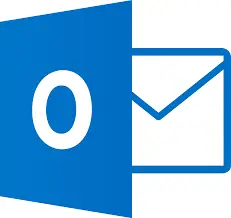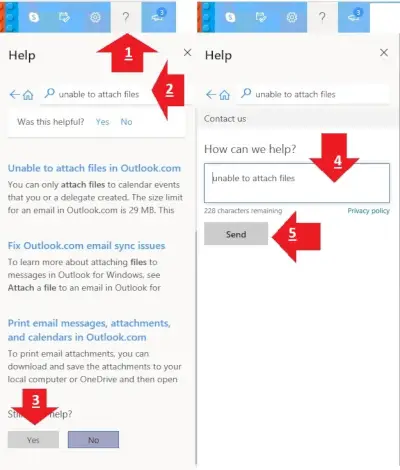In the age of digital communication, email remains one of the most crucial tools for personal and professional correspondence. Outlook, one of the leading email clients by Microsoft, is widely used for managing emails, calendars, and other essential communications. However, many users wonder about the legal and ethical implications of closing an email or simply ignoring update emails sent by service providers or companies. This article explores whether it is legal to close an email on Outlook if you are ignoring all update emails, the potential consequences, and best practices to manage your inbox effectively.
Table of Contents:
- Introduction to Outlook and Email Management
- Legal Aspects of Closing and Ignoring Emails
- Ethical Implications of Ignoring Emails
- The Importance of Update Emails
- How to Effectively Manage Update Emails in Outlook
- Consequences of Ignoring Important Emails
- Tips for Organizing Your Outlook Inbox
- Understanding Outlook’s Settings and Features
- Best Practices for Email Communication
- Frequently Asked Questions
Introduction to Outlook and Email Management
Outlook is a widely-used email client that allows users to manage their emails, calendar appointments, contacts, and tasks in one place. Available as part of the Microsoft Office suite, Outlook provides features tailored for both home and business users, making it a versatile tool for handling personal and professional communications. Whether you’re using Classic Outlook for Windows or the web-based Outlook.com, understanding how to effectively manage your inbox is crucial for maintaining communication efficiency.
Why Email Management Is Important
- Time Management: Proper email management saves time by keeping your inbox organized and clutter-free.
- Security: Efficient email handling helps prevent missing critical updates, reducing the risk of security breaches.
- Professionalism: Responding to emails promptly reflects professionalism and can impact relationships and business dealings.
Legal Aspects of Closing and Ignoring Emails
Understanding the legal implications of closing an email on Outlook or ignoring update emails is essential. While the act of closing an email itself is not illegal, ignoring certain types of emails may have legal consequences, especially in professional or contractual contexts.
Types of Emails with Legal Obligations
- Contractual Emails: Ignoring emails related to contracts or agreements can result in legal consequences if deadlines or obligations are missed.
- Regulatory Emails: Emails from government or regulatory bodies often require a response or action; ignoring them could lead to penalties.
- Workplace Communications: Ignoring critical work-related emails may lead to breaches of workplace policies or agreements.
Is It Legal to Ignore Update Emails?
Generally, it is not illegal to ignore update emails sent by service providers or companies, such as those regarding software updates or policy changes. However, ignoring these emails may result in missing important information that could affect your rights or access to services.
For example, ignoring emails about changes in terms of service from Outlook.com or your email service provider could lead to limitations on your account or loss of certain features.
Ethical Implications of Ignoring Emails
While the legality of ignoring emails is one aspect, the ethical implications cannot be overlooked. Ethically, ignoring emails—especially those that involve communication with colleagues, clients, or service providers—can damage relationships and trust.
Potential Ethical Issues
- Professional Integrity: Ignoring emails in a professional setting can lead to a loss of trust and credibility.
- Responsiveness: Failing to respond to important emails may be seen as unprofessional or neglectful.
- Communication Breakdown: Ignoring update emails may result in missed information that affects project timelines or decisions.
The Importance of Update Emails
Update emails often contain critical information about changes to services, products, or policies. Understanding their importance can help you make informed decisions about whether to ignore, delete, or respond to them.
Common Types of Update Emails
- Software Updates: Notifications about new versions, security patches, or feature enhancements.
- Policy Changes: Emails informing you of changes in terms of service, privacy policies, or data handling practices.
- Account Notifications: Alerts regarding account activity, billing updates, or security warnings.
Why You Should Pay Attention to Update Emails
Update emails serve several critical functions, such as ensuring that you are aware of the latest security measures, feature updates, and policy changes that may impact your use of Outlook or other services. Ignoring these emails can lead to missed opportunities for improvements or protections and might even compromise the security of your personal information.
How to Effectively Manage Update Emails in Outlook
Managing update emails effectively in Outlook involves a few key strategies that help you stay organized while ensuring that you don’t miss important communications.
Creating Folders and Rules
One of the best ways to manage update emails is by using folders and rules in Outlook to automatically sort these messages as they arrive.
Steps to Create Folders:
- Open Outlook and go to your inbox.
- Right-click on your inbox or an existing folder, then select New Folder.
- Name the folder (e.g., “Updates”) and click OK.
Steps to Create Rules:
- Go to the Home tab and click on Rules in the Move group.
- Select Manage Rules & Alerts.
- Click on New Rule and choose a template (e.g., “Move messages from someone to a folder”).
- Set conditions for the rule (e.g., sender contains “update”), then choose the destination folder created earlier.
- Click Finish to save the rule.
Using Search Folders
Search Folders in Outlook allow you to view all update emails from various sources in one place without moving them from their original folders.
Steps to Create a Search Folder:
- Go to the Folder tab and click on New Search Folder.
- Select a pre-defined search folder (e.g., “Mail from specific people”) or create a custom one.
- Set the criteria for the search folder (e.g., messages containing “update”).
- Click OK to create the search folder.
Consequences of Ignoring Important Emails
Ignoring important emails—especially those related to updates, security, or contractual obligations—can have significant consequences. Understanding these risks can help you prioritize which emails to address promptly.
Potential Risks
- Security Vulnerabilities: Ignoring update emails may leave you unaware of critical security patches, making your system vulnerable to attacks.
- Service Disruptions: Failing to respond to emails about service changes or billing issues could result in loss of access to essential services.
- Legal Implications: Missing emails related to contracts or regulatory requirements could lead to legal consequences or fines.
Tips for Organizing Your Outlook Inbox
An organized inbox helps you manage your emails more efficiently and ensures that you don’t overlook important communications. Here are some tips for keeping your Outlook inbox tidy and functional.
Use Categories
Categories allow you to color-code your emails based on their content or urgency, making it easier to identify important messages at a glance.
Steps to Assign Categories:
- Right-click on an email and select Categorize.
- Choose a category or click on All Categories to create a new one.
- Assign a color and name to the category, then click OK.
Implementing a “Zero Inbox” Strategy
The “Zero Inbox” strategy involves clearing your inbox of all emails by the end of each day, either by responding, archiving, or deleting them.
Steps to Achieve Zero Inbox:
- Set aside time each day to process your emails.
- Respond to or forward emails that require action.
- Move completed emails to an archive folder.
- Delete any emails that are no longer needed.
Archiving Old Emails
Archiving old emails can free up space in your inbox and make it easier to find recent messages.
Steps to Archive Emails:
- Select the emails you wish to archive.
- Go to the Archive button on the ribbon or right-click and select Archive.
- Choose the archive location, then click OK.
Understanding Outlook’s Settings and Features
Outlook offers a variety of settings and features that can enhance your email management experience. Knowing how to configure these settings can help you tailor Outlook to your specific needs.
Adjusting Notification Settings
Outlook allows you to customize your notification settings, so you’re only alerted to important emails.
Steps to Adjust Notifications:
- Go to File > Options and select Mail.
- Scroll down to the Message arrival section.
- Choose your notification preferences (e.g., play a sound, display a Desktop Alert).
- Click OK to save changes.
Using Focused Inbox
The Focused Inbox feature in Outlook automatically sorts your emails into two tabs—Focused and Other—based on their importance.
Steps to Enable Focused Inbox:
- Go to the View tab and click on Show Focused Inbox.
- Outlook will start sorting your emails into the Focused and Other tabs.
- You can move emails between tabs by right-clicking and selecting Move to Focused or Move to Other.
Customizing Email Signatures
An email signature can provide important information and give your communications a professional touch.
Steps to Create an Email Signature:
- Go to File > Options and select Mail.
- Click on Signatures and then New to create a new signature.
- Enter your signature information and format it as desired.
- Choose when the signature should be used (e.g., for new emails, replies/forwards).
- Click OK to save your signature.
Best Practices for Email Communication
Following best practices for email communication can help you maintain professionalism and efficiency in your correspondence.
Responding Promptly
Responding to emails in a timely manner is crucial for maintaining good communication, especially in a professional setting.
Tips for Prompt Responses:
- Aim to respond to emails within 24 hours.
- If you need more time to respond fully, send a quick acknowledgment and follow up later.
- Prioritize emails based on urgency and importance.
Clear and Concise Communication
Clear and concise emails help prevent misunderstandings and ensure your message is easily understood.
Tips for Writing Clear Emails:
- Use bullet points or numbered lists to organize information.
- Keep paragraphs short and focused on a single point.
- Include a clear subject line that summarizes the content of the email.
Respecting Privacy and Confidentiality
Always respect the privacy and confidentiality of others when sending emails, especially in professional or sensitive situations.
Best Practices for Email Privacy:
- Use BCC (Blind Carbon Copy) when sending emails to multiple recipients who don’t know each other.
- Avoid sharing confidential information over email unless necessary, and use encryption if possible.
- Double-check the recipient list before sending emails to ensure they reach the intended audience.
Frequently Asked Questions
Is it legal to close an email without reading it?
Yes, it is legal to close an email without reading it. However, ignoring certain emails, especially those related to legal or contractual obligations, could have consequences.
What should I do if I accidentally ignore an important email?
If you realize you’ve ignored an important email, respond to it as soon as possible and explain the oversight. Prompt communication can help mitigate any negative effects.
Can ignoring update emails affect my Outlook account?
While ignoring update emails may not directly affect your Outlook account, you could miss important information about changes to the service, security updates, or features that could impact your account usage.
How can I prevent missing important emails in Outlook?
Use features like Focused Inbox, rules, and notifications to ensure important emails are prioritized and easy to find.
What are the risks of not updating my Outlook settings as recommended in update emails?
Failing to update your Outlook settings as recommended can leave your account vulnerable to security risks, reduce functionality, and lead to compatibility issues with other software.




